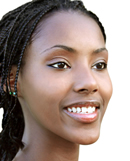
At Pacific Coast Dermatology, we strive for the best in patient treatment and service. We offer a myriad of dermatological services and treatments at a superb level of quality. As a Diplomate of the American Board of Dermatology, Dr. Hoang treats virtually every skin condition that exists, and we offer a variety of treatment options for many conditions.
We strongly believe in preventative care by performing a very thorough and comprehensive skin exam for abnormal moles and early detection of skin cancers.
As a Fellow of American Academy of Dermatology, Dr. Hoang feels that the American Academy of Dermatology provides the most comprehensive and regularly updated guide to all skin conditions. The following web link is provided to our patients for information and education. Self-diagnosis and self-treatment are not recommended.
For a brief synopsis, click on any medical dermatologic conditions below to learn more:
Skin Cancer Detection & Treatment
Skin cancer refers to the abnormal, uncontrolled growth of skin cells. One in five people will develop skin cancer in their lifetime. Fortunately, skin cancer is almost always curable if detected and treated early. Complete full body skin exam by your dermatologist is the best skin cancer early detection and prevention.

The most common skin cancers are:
- Basal cell carcinoma - 80-85% of all skin cancers. Basal cell carcinoma affects cells in the lowest layer of the epidermis.
- Squamous cell carcinoma - 10% of all skin cancers. Squamous cell carcinoma affects cells in the middle layer of the epidermis.
- Melanoma - 5% of all skin cancers. Melanoma is a rare but very dangerous type of skin cancer. It is the leading cause of death from skin disease. Skin cancers vary in shape, color, size and texture, so any new, changed or otherwise suspicious growths or rashes should be examined immediately by your dermatologist. Early intervention is essential to preventing the cancer from spreading.
Click here for more information on Skin Cancer Detection & Treatment.
Moles
Moles and other birthmarks are benign pigmented spots or patches of skin that range in color from tan, brown and black (moles) to red, pink or purple (vascular lesions). The medical term for a mole is a NEVUS. Moles that appear after age 50 should be regarded with suspicion.
Click here for more information on Mole Removal.
Acne

Acne is a common skin condition that afflicts most people, to a varying degree, during the teen years. However, adults in their 20's or 30's may have acne. Treatment, depending on the type and severity of lesions, as well as the patient’s skin type, age and lifestyle, can improve your appearance and self esteem, and prevent the development of lifelong scars.
Click here for more information on Acne Treatment.
Rosacea
Rosacea is a chronic skin disorder whose symptoms include redness, swelling on the face and pimples on the nose, forehead, cheekbones, and chin, visible blood vessels to dry and burning skin and a tendency to flush easily. The scalp, neck, ears, chest, back and/or eyes may also be affected. About one in every twenty Americans is afflicted with it. It can be treated with topical and oral medications, laser therapy or laser surgery.
Click here for more information on Rosacea Treatment.
Psoriasis
Psoriasis is a common skin condition where the skin develops areas that become thick covered with silvery scales. Millions of people in the United States have psoriasis. The presence of psoriasis can cause emotional distress. The most commonly affected areas are the scalp, elbows, knees, hands, feet and genitals. Psoriasis cannot be cured but it can be treated successfully, sometimes for months or years at a time. The most common treatments are topical medications, phototherapy, photochemotherapy (PUVA), and oral or injectable medication.
Click here for more information on Psoriasis Treatment.
Eczema / Atopic Dermatitis
Eczema, is a chronic skin that causes areas of red, itchy skin. This condition usually starts in early childhood, especially when there is a family history of atopy (asthma, hay fever, conjunctivitis, or food allergies). Dermatologists may prescribe topical corticosteroids, topical immunomodulators, antibiotics to combat infection, or sedative antihistamines and phototherapy. For severe cases, oral immunosuppressants such as cyclosporine A may be recommended.
Click here for more information on Eczema Treatment.
Pigmentary Irregularities or Melasma
Melasma, also known as cholasma, is characterized by irregular patches of dark skin on the face. These tan or brown patches usually occur symmetrically on the cheeks, upper lip, nose, or forehead. Melasma is found more often in women. Those with darker skin types (including Hispanics, Middle-Easterners, and Asians) are more prone to melasma than those with lighter complexions.

The cause of melasma is not fully understood. However, genetics, hormonal changes, and excessive sun exposure are known to play important roles.
Treatments for melasma may include: UVA/UVB Sunscreen of SPF 30 or higher, bleaching or depigmenting Agents including Hydroquinone, Kojic Acid, Azelaic Acid and laser therapy such as CO2 laser resurfacing and IPL.
Click here for more information on Melasma/Pigmentary Irregularities.
Warts
Warts are simply areas of skin that grow faster than normal due to the presence of wart viruses. Liquid nitrogen is what dermatologists use most often to cure warts. Burning warts off with a CO2 laser or electric needle is often effective. A more effective laser is the pulsed dye laser since there is absolutely no downtime from pain, and scarring is rare.
Click here for more information on Wart Removal.
Hyperhidrosis, Excessive Sweating

The medical term for excessive sweating is hyperhidrosis. The armpits and the palms are the areas most often troublesome. The best product is available by prescription (Drysol). Botox injections, a treatment now popular for wrinkles, will control excessive sweating for 4 to 6 months. Many insurances are now covering the cost of Botox for this condition.
Click here for more information on Hyperhidrosis (Excessive Sweating).
If you have any questions or concerns about any above potential skin condition, please call us at 909.364.1959 and make an appointment today to discuss it with Dr. Hoang.

